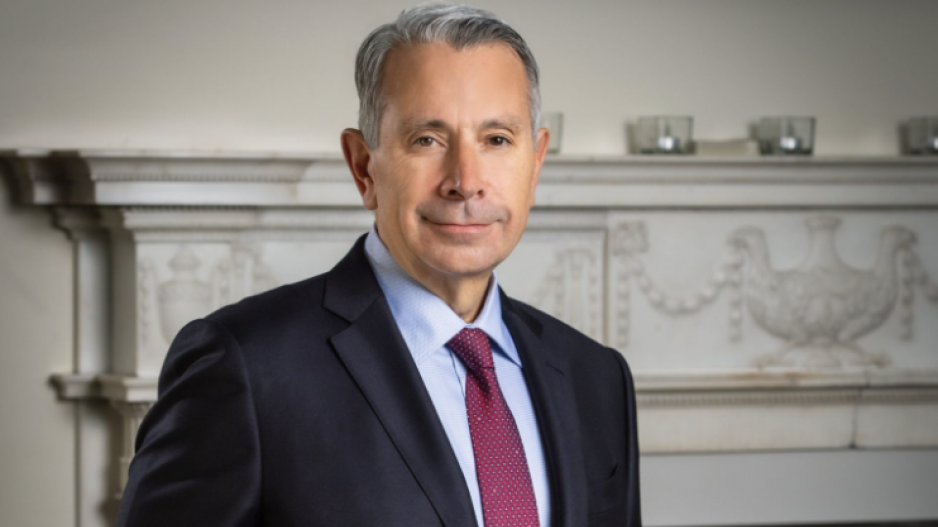Managers, tell me, how has your last year-and-a-half gone? A touch challenging in the pandemic, you say?
For comparison’s sake, let’s look at what Tony Staffieri has navigated since the fall of 2021.
First, you may recall that, as the Rogers Communications Inc. CFO, he was being tapped by its board chair Edward Rogers to replace president and CEO Joe Natale. When word of that plan leaked, Staffieri and not Natale suddenly exited.
Second, in a TV-series-Succession-like family spectacle, the Rogers board was gutted from the top, Natale moved out and Staffieri was back and installed at the top. Usually this is a jubilant moment, but the company ranked last in almost every industry metric. The work on his desk and ahead wasn’t pretty.
Third, there was this lingering, pesky proposal of a $26 billion merger with Shaw Communications – the reason Staffieri and not Natale was the choice of the board chair to effect it. Most everyone outside of the two firms with an opinion and a platform didn’t like it. This, even though it was evident Shaw didn’t believe it would thrive – what Staffieri says its staff termed “competing with Telus with one hand behind its back” – so had turned to a buyer it respected, whose founding families were friends.
Fourth, the chore of earning regulatory approval from the CRTC. Typically that’s a hornet’s nest of mollifying with benefits to close the deal. In hindsight, it feels a bit of a breeze in the scheme of things.
Fifth, there was the strange situation of Rogers having to find a buyer for Shaw’s Freedom Mobile service to satisfy the government’s antitrust watchdog. Thanks to this, money was left on the table in selling Freedom to Vidéotron for $2.85 billion to create a fourth competitive carrier. Yes, in essence that meant a) finding a buyer to compete with you, and b) selling its licences at a below-market rate. Welcome to Canada.
Sixth, there was the bizarre Competition Tribunal review. On the basis of the Freedom plan, it approved the deal, only to have its Competition Bureau run to court to overturn the decision. In hindsight, that was when some would have given up and saddled the government with the mess of a large western Canadian company with no benefactor. But no, it fought in the courts and soldiered on.
Seventh, to complicate this path there came a days-long service outage last July – the unintended consequence of technical maintenance.
Eighth, two years in, when just watching this ordeal had exhausted us, the federal government at last in March approved the deal and imposed yet another batch of conditions.
Amid this, Rogers under Staffieri had quietly shed those terrible industry metrics to now be deemed a top-running company. But now the real Staffieri stewardship begins.
“Patience.” Asked what he has learned about himself, he settles on that word and “the importance” of it – how he could “get into the details when it’s warranted, but always coming back to the 100,000-foot level so that we know we’re headed in the right direction.”
He talks not only big-picture, but about his fascination with rooting out old ways of doing things, some of the “quirky things we do” that are “more pain points for the customer than we realize.… Small things we can fix.”
Last week, when Staffieri swung into B.C., into the downtown Shaw Tower no less, he appeared to be breathing normally, but here is someone who could use less drama in his life.
The company announced it was repatriating hundreds of customer service jobs to Canada and extending its support of the Vancouver Canadians baseball team at a newly named Rogers Field at Nat Bailey Stadium.
Of its $6.5 billion plan, there are $3 billion in economic benefits to B.C. that will stimulate $3.6 billion in economic activity. Of the many initiatives amid the 5G splurge, the $500 million plan to connect remote highways and Indigenous communities strikes me as the most meaningful, along with the move into B.C. of the Connected to Success program that helps low-income Canadians gain access to wireline and wireless services.
Any manager out there with a wilder pandemic odyssey than that? Drop me a line.
Kirk LaPointe is publisher and executive editor of Business in Vancouver and vice-president, editorial, of Glacier Media.



